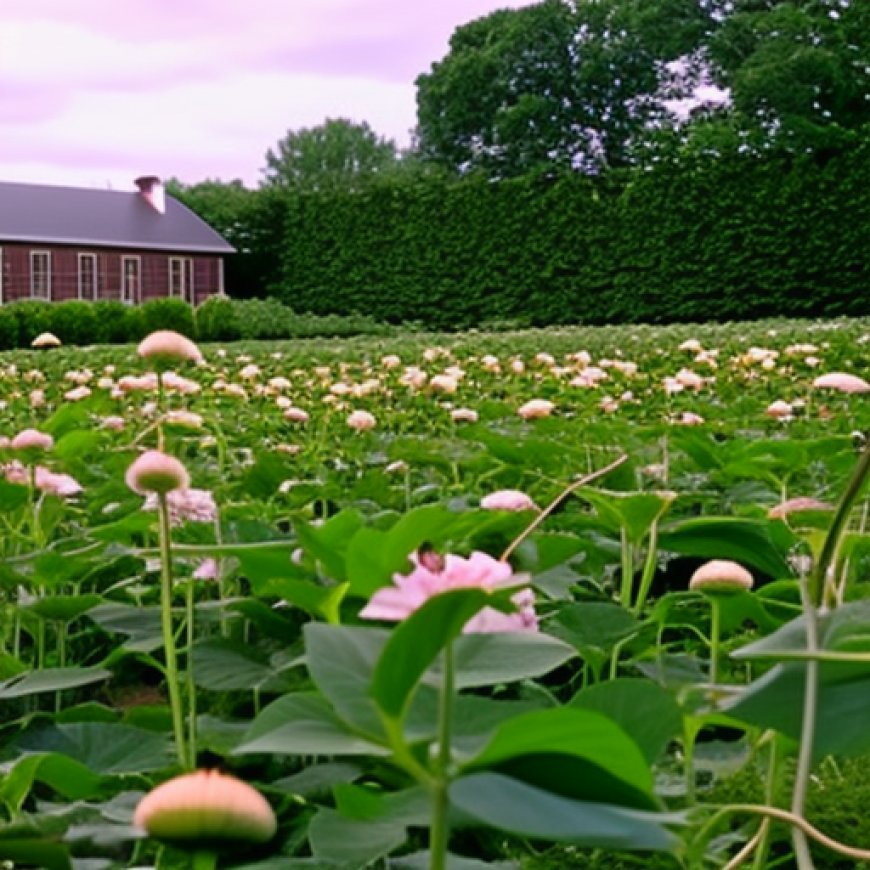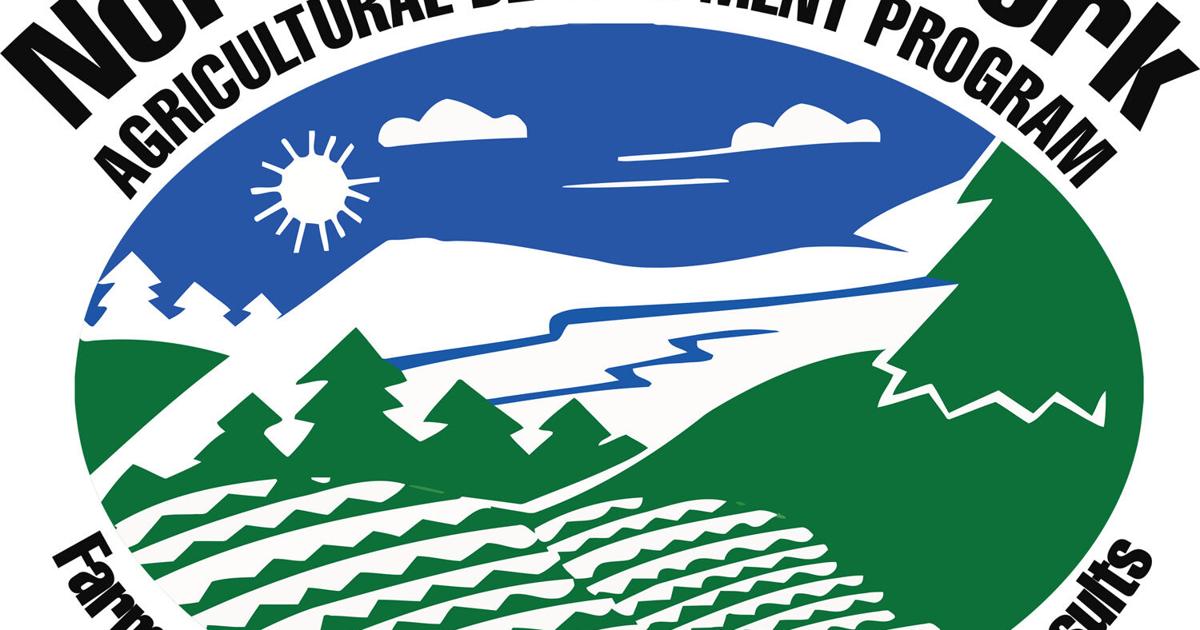NNYADP announces call for 2024 On-Farm Research Proposal
NNYADP announces call for 2024 On-Farm Research Proposal Plattsburgh Press Republican


Call for On-Farm Research Proposals by Northern New York Agricultural Development Program

Introduction
The Northern New York Agricultural Development Program (NNYADP) is currently accepting on-farm research proposals. The program aims to support practical and innovative research that enhances the economic and environmental sustainability of regional farms. It also seeks to address challenges such as changing market conditions, climate change, weather extremes, and emerging pests and diseases.
Application Process
Interested individuals can access the application form and guidelines on the NNYADP website under the “About: Projects by Year” tab. The deadline for submitting proposals is October 27.
About NNYADP
The NNYADP was established by the New York State Legislature to promote the growth of the agricultural and food economy in the northernmost region of the state, including Clinton, Essex, Franklin, Jefferson, Lewis, and St. Lawrence counties.
Review Process
The NNYADP Farmer Committee is responsible for reviewing and prioritizing research proposals for small grants. Over 97.5 percent of NNYADP funding directly supports research and the delivery of results.
Access to Results
The results of recent NNYADP grant projects are publicly accessible on the NNYADP website under the “About: Projects by Year” tab.
Funding
The Northern New York Agricultural Development Program receives funding from the New York State Legislature through the New York State Assembly. The program is administered by the New York State Department of Agriculture and Markets.
SDGs, Targets, and Indicators
1. Which SDGs are addressed or connected to the issues highlighted in the article?
- SDG 2: Zero Hunger
- SDG 8: Decent Work and Economic Growth
- SDG 13: Climate Action
- SDG 15: Life on Land
The article discusses the Northern New York Agricultural Development Program (NNYADP), which aims to support regional farms in becoming economically and environmentally sustainable. This aligns with SDG 2, which focuses on achieving food security and promoting sustainable agriculture. Additionally, the program helps farms adapt to challenges such as changing market conditions, climate change, weather extremes, and emerging pests and diseases, which are relevant to SDG 13 (Climate Action) and SDG 15 (Life on Land). The NNYADP also contributes to SDG 8 by promoting decent work and economic growth in the agricultural sector.
2. What specific targets under those SDGs can be identified based on the article’s content?
- SDG 2.4: By 2030, ensure sustainable food production systems and implement resilient agricultural practices that increase productivity and production.
- SDG 8.3: Promote development-oriented policies that support productive activities, decent job creation, entrepreneurship, creativity, and innovation.
- SDG 13.3: Improve education, awareness-raising, and human and institutional capacity on climate change mitigation, adaptation, impact reduction, and early warning.
- SDG 15.1: By 2020, ensure the conservation, restoration, and sustainable use of terrestrial and inland freshwater ecosystems and their services.
Based on the article, the NNYADP aims to enhance sustainable food production systems and implement resilient agricultural practices, which aligns with SDG 2.4. The program also promotes productive activities, job creation, entrepreneurship, and innovation in the agricultural sector, supporting SDG 8.3. Additionally, the NNYADP addresses climate change adaptation and mitigation, contributing to SDG 13.3. Lastly, the program focuses on the sustainable use of land and ecosystems, which is relevant to SDG 15.1.
3. Are there any indicators mentioned or implied in the article that can be used to measure progress towards the identified targets?
Yes, the article mentions indicators that can be used to measure progress towards the identified targets. These include:
- Research proposals submitted by farmers: The number and quality of research proposals received can indicate the level of engagement and interest of farmers in implementing resilient agricultural practices (SDG 2.4).
- Number of grants awarded: The number of grants awarded by the NNYADP can reflect the support provided for productive activities, job creation, and innovation in the agricultural sector (SDG 8.3).
- Accessibility of project results: The availability and accessibility of project results on the NNYADP website can indicate the dissemination of knowledge and awareness-raising on climate change adaptation and mitigation (SDG 13.3).
- Conservation and restoration efforts: The implementation of conservation and restoration projects by farmers can demonstrate progress towards the sustainable use of land and ecosystems (SDG 15.1).
4. SDGs, Targets, and Indicators
| SDGs | Targets | Indicators |
|---|---|---|
| SDG 2: Zero Hunger | 2.4: By 2030, ensure sustainable food production systems and implement resilient agricultural practices that increase productivity and production. | – Research proposals submitted by farmers – Implementation of resilient agricultural practices |
| SDG 8: Decent Work and Economic Growth | 8.3: Promote development-oriented policies that support productive activities, decent job creation, entrepreneurship, creativity, and innovation. | – Number of grants awarded – Level of job creation and entrepreneurship in the agricultural sector |
| SDG 13: Climate Action | 13.3: Improve education, awareness-raising, and human and institutional capacity on climate change mitigation, adaptation, impact reduction, and early warning. | – Accessibility of project results – Dissemination of knowledge on climate change adaptation and mitigation |
| SDG 15: Life on Land | 15.1: By 2020, ensure the conservation, restoration, and sustainable use of terrestrial and inland freshwater ecosystems and their services. | – Conservation and restoration efforts by farmers – Sustainable use of land and ecosystems |
Behold! This splendid article springs forth from the wellspring of knowledge, shaped by a wondrous proprietary AI technology that delved into a vast ocean of data, illuminating the path towards the Sustainable Development Goals. Remember that all rights are reserved by SDG Investors LLC, empowering us to champion progress together.
Source: pressrepublican.com

Join us, as fellow seekers of change, on a transformative journey at https://sdgtalks.ai/welcome, where you can become a member and actively contribute to shaping a brighter future.







